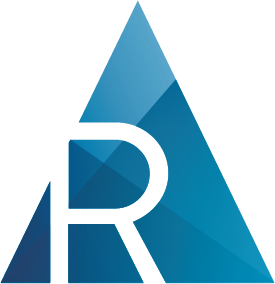Preparedness, Acquisitions, and Other Top Audit Concerns for 2021
Employee turnover, deal activity, audit readiness, and many other complexities are top of mind at the start of this year’s audit cycle.
Year-end audit preparation remains a top concern
For most accounting and finance professionals, audits are not a new topic, but audit coordination remains a top concern. Audit-related challenges can be mitigated when teams prepare early, so accounting and finance professionals should examine what incremental work can be done early in the audit cycle. Doing so reduces staff workload during busy year-end phases, allows for early detection of issues that require correction, and enables companies to issue audited financial statements on time.
How to prepare for year-end audit challenges:
- Ensure materiality and sample sizes are agreed to early in the process by delivering trial balances to auditors in a timely manner.
- Review the request list from auditors and agree on realistic delivery dates.
- Establish and reconcile audit schedules to the trial balance before providing the information to auditors.
- Prepare technical accounting documentation for complex and unusual areas prior to the audit.
- Collaborate closely with valuation and other specialists to produce timely deliverables.
- Anticipate and meet deadlines by ensuring transparent communications with auditors throughout the audit cycle.
Companies facing acquisitions, divestitures, or capital markets events must prepare for changes
The majority of companies surveyed in a recent webinar are planning a major transaction such as an acquisition (41%), a divestiture (13%), or taking the organization public (12%). Any of these scenarios can create a host of operational and accounting issues.
With ample activity in capital markets, including companies seeking to go public through a SPAC or traditional initial public offering (IPO), understanding the nuances of this lifecycle and associated public company readiness factors are important. These factors include everything ranging from enhanced disclosures to higher levels of preparedness and scrutiny in audit procedures.
Companies will also need to address internal controls to ensure SOX compliance. Technology initiatives can support and streamline this process. Often, when private companies are considering a SOX-compliant environment, errors and lack of readiness can be common when teams try to design the environment for the first time. While a private company considering a capital markets transaction in 2022 may not need to be SOX compliant for their 2021 financials, teams should begin preparing for possible requirements and compare the current state of controls to what may be required as a public company.
Today’s job market may cause abrupt transitions and significant knowledge gaps
Uncertainty and reshaped worker expectations have caused turnover and personnel risks for organizations this year. When turnover happens, knowledge gaps can be a major concern, and often the necessary knowledge transfer does not occur during a two-week-notice period when a key employee leaves a company. Ways to mitigate these knowledge gaps include:
Creating formal desktop procedures and accounting policies that document how to perform key processes. This strategy helps to avoid losing nuances and key judgements discussed with the audit team which ultimately creates a more seamless, repeatable process and prevents steps from getting lost in translation during employee turnover.
Implementing a shared drive or other centralized knowledge repository. This step is an important practice in general, and especially critical for accounting and finance functions. Many examples and historical documentation exist on key personnel’s computers, and if they leave, that critical information effectively leaves with them. Requiring a central repository and transition plan will help mitigate this risk at all levels, from entry level workers, to third party consultant roles, to leadership, and beyond.
Cross-training staff to ensure that an “understudy” exists for each role. Training employees across roles and functions makes it easier to cover an absence or departure, but managers should be mindful of the potential impact to the control environment, particularly regarding segregation of duties, as roles and responsibilities change.
For 2021, the audit cycle will present many complexities that audit and accounting professionals must address. In addition to preparing for the impacts of potential changes and mitigating key person risks, other important considerations range from navigating business combinations to evolving tax implications to impairment and more. When teams proactively address these concerns, companies can both tackle pressing challenges while also refining processes and approaches that will equip organizations to realize new potential going forward.
Riveron’s Ask The Experts webinar examines many of the complexities of this year’s audit cycle—watch the replay to learn more.

